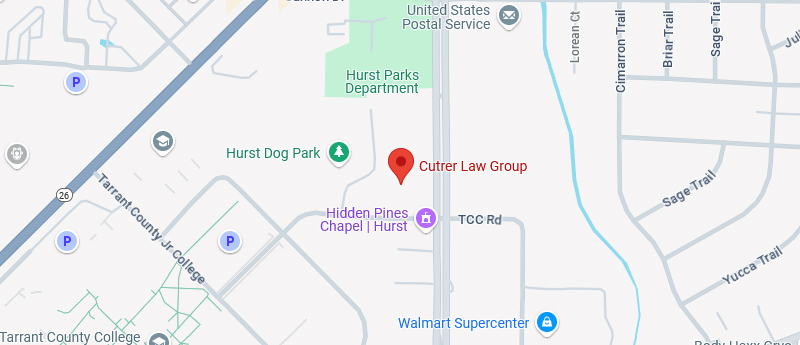What Is a Will and Its Key Components in Texas?
A Will may sound like an easy document to draft, but that is not the case. Even in a modest household, a Will must be detailed and precisely legally written to ensure your precise wishes are followed upon your death.
Under Texas law, a will is a document that directs how your assets should be distributed upon your death. You and your family must clearly outline how your estate, financial investments, etc., are managed after you die.
If you don’t have a valid will in Texas, the state’s intestacy laws will determine the entire distribution of your assets and possibly your estate when you die.
The critical elements of a Texas Will are:
- The testator – This person drafts the Will (usually you). You must be 18 years old, of a sound mind, and not under any duress at the time of your Will’s formation.
- Your beneficiaries – These are the family members, friends, Individuals, or entities designated to receive your assets.
- The executor of the Will – This person you designate to administer and manage your wishes after you die. The executor must be trusted to follow all the Will’s directions, such as distributing assets, paying debts, and managing your estate.
- Witnesses – In Texas, at least two credible witnesses must sign and attest to your will. These witnesses will confirm your mental capacity, thus reducing disputes over its validity.
- A self-proving affidavit – This document is optional but can significantly help to streamline probate.
So, although a Will may seem easy to draft, it must be done professionally to adhere to all the laws and regulations mandated by Texas law. If done incorrectly, then upon your death, the document may not hold up in court or be subject to dispute between family members or other beneficiaries.
What Is a Self-Proving Affidavit and How Does It Help in My Will?
Including a self-proving affidavit in your Texas Will is not a legal requirement to make your Will valid. However, this document significantly shortens and streamlines the usually long and costly probate process.
Suppose you do not include a self-proving affidavit. In that case, it may be necessary to call your witnesses into court and have them provide legal testimony that your signature on the Will is genuine and they witnessed you (as the testator) sign the document. This issue can be problematic if your witnesses have died, moved, or can no longer be located.
Your experienced, knowledgeable family lawyer knows that including a self-proving affidavit will substitute for the in-court testimony of witnesses during the probate process. This usually saves your estate, family, and other beneficiaries considerable time, stress, emotional strain, and expense.
What Is a No Contest Clause, and Can It Help My Enforce My Will?
When you draft a Will, you always want to ensure that your specific directives are carried out upon your death. However, there’s always the chance that family members (and others) might contest your will (and its directives); you could include a “no-contest clause” to prevent or hinder that from happening.
By including a no-contest clause (aka a terrorem clause), you effectively use it as the testator to hinder or stop any beneficiary or family member from legally contesting all or part of your will. If the no-contest clause is drafted professionally, with the help of a highly knowledgeable and caring family Will’s lawyer, any beneficiary or heir who contests your Will will forfeit any inheritance, gift, or asset they would otherwise receive.
They have the right to contest your will, but they lose all rights to what they would have received if they fail to prove it is, in fact, invalid.
Let’s surmise that a family member is expected to receive a gift or asset, but when the will is read, he doesn’t get it. In this case, they still might contest the will as they have nothing to lose. This means that a no-contest clause is usually most effective if you have family members or beneficiaries to whom you want to leave assets; they, therefore, might think twice before challenging it.
Also, note that if “probable cause” is legally present, your Will may be challenged, but any allegations must be proven.
Using a no-contest clause can be hard to do, as it might seem that you expect problems among your surviving family members or favor some heirs over others. However, this clause is a legal part of your Will that’s meant to help avoid conflict, and the best way to decide on its use is to discuss your entire family situation, assets, etc., thoroughly and in full detail with your experienced and empathetic Texas family Will’s lawyer.
Is a Will an Important Document to Use In Texas?
The simple answer is Yes, it is. Drafting a well-written, professional Will is far more than just a legal formality; it’s usually a critical part of any estate plan and can significantly impact your loved one’s financial and emotional future.
If you die in Texas without a will, you die ‘intestate.’ Therefore, Texas state laws will entirely determine the distribution of your assets, property, etc.
When this occurs, it is rarely done how you wanted it to be and usually doesn’t align with your or your family’s wishes.
Additionally, a well-drafted will can prevent possible disputes among family members and heirs and ensure that minors and dependents are cared for according to your preferences and directives.
To fully understand the vital importance of a Will, you should always obtain the advice and guidance of a skilled, well-versed, and caring Texas family lawyer with solid experience in Will’s and the impact they can have on your family’s future.
I Need More Information On How a Will Can Help My Family; How Should I Proceed?
You must note that the legal requirements for a valid will in Texas can be complex and carry much weight in court. Obtaining a qualified family lawyer’s highly skilled, caring, and professional advice is the wisest and most prudent way to ensure that your last wishes are honored and respected when the time comes.
Also, a Will goes beyond financial considerations; it can determine who will raise your children, run the business you built, and much more.
Anita K. Cutrer of the Cutrer Law Group has a long, empathetic, and successful history of drafting practical and sound Wills that ensure your last wishes are honored.
Call her today at 817-854-1651 for a consultation on your unique situation. She will ensure you fully understand the legal options a Will can provide and work to ensure your final wishes are precisely carried out.





 1845 Precinct Line Road
1845 Precinct Line Road info@akcfamilylaw.com
info@akcfamilylaw.com 817-854-1651
817-854-1651



